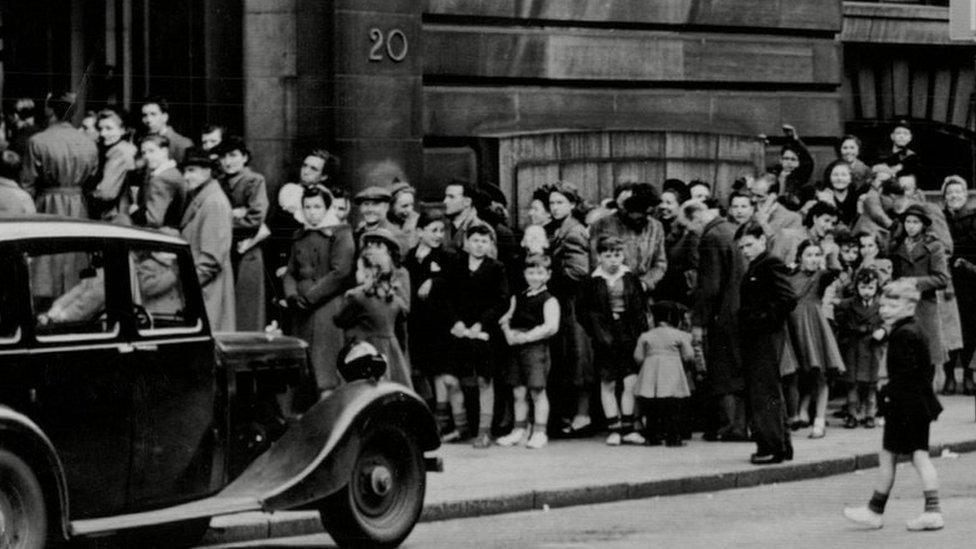Two more monkeypox cases confirmed in Scotland
- Published
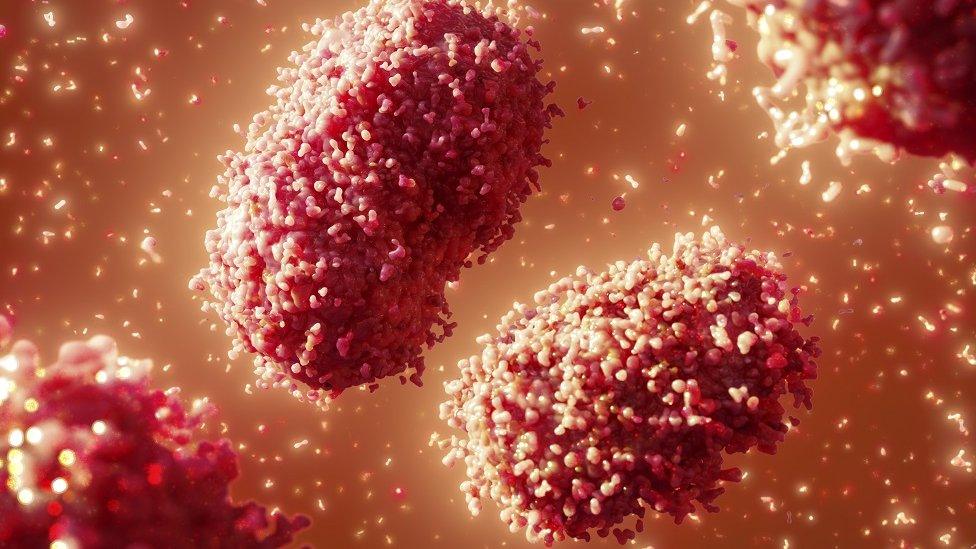
Two more cases of monkeypox have been confirmed in Scotland, the public health body has confirmed.
It means there have now been three Scottish cases reported since Monday. Risk to the public is said to be low.
Public Health Scotland (PHS) said the two patients had "recent travel history" and were receiving appropriate care and treatment.
According to the UK Health Security Agency, there have been 82 reported monkeypox cases in the UK outbreak.
Dr Nick Phin, director of public health science and medical director at Public Health Scotland, said they were working with NHS Boards and partners in Scotland and the UK "to investigate the source of these infections".
"We have well-established and robust infection control procedures for dealing with such cases of infectious disease and these are being strictly followed." Dr Phin said.
"The overall risk to the general public is low."
He urged anyone with an unusual blister-like rash or small number of blister-like sores on any part of their body, including their genital area, to avoid close contact with others and seek medical advice if they have concerns.
There is no specific vaccine for monkeypox, but a smallpox jab offers 85% protection as the two viruses are quite similar.
On Wednesday, Scottish Courts and Tribunal Service (SCTS) confirmed a trial in Inverness had been adjourned due to a witness being absent because of a suspected case of monkeypox.

What are the symptoms?
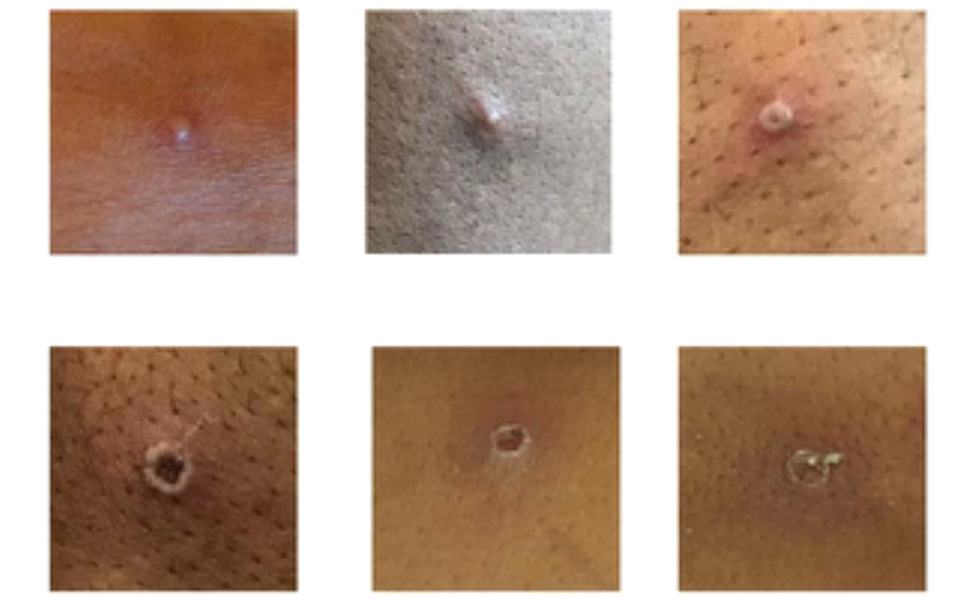
The rash changes and goes through different stages, and can look like chickenpox or syphilis, before finally forming a scab, which later falls off
Initial symptoms include fever, headaches, swellings, back pain and aching muscles.
Once the fever breaks, a rash can develop - often beginning on the face, then spreading to other parts of the body, most commonly the palms of the hands and soles of the feet.
The rash, which can be extremely itchy or painful, changes and goes through different stages before finally forming a scab, which later falls off. The lesions can cause scarring.
The infection usually clears up on its own and lasts between 14 and 21 days.

The disease, first found in monkeys, does not tend to spread easily between people but can be transmitted through close physical contact. That includes:
touching clothing, bedding or towels used by someone with monkeypox rash
touching monkeypox skin blisters or scabs
the coughs or sneezes of a person with the monkeypox rash
The UK Health Agency Security advised people with the highest risk of having caught monkeypox to isolate for 21 days.
Monkeypox is most common in remote parts of Central and West Africa.
Infections have been confirmed by public health agencies in several European countries as well as the UK - where the first European case was reported on 7 May - and in Australia, the US and Canada.
The World Health Organisation (WHO) described the recent outbreaks as "atypical, as they are occurring in non-endemic countries".
- Published26 May 2022
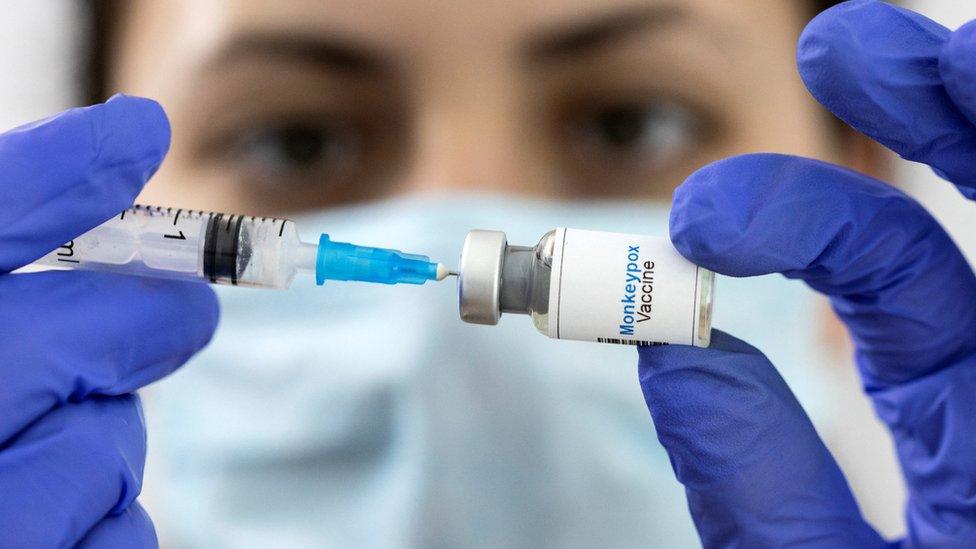
- Published25 May 2022
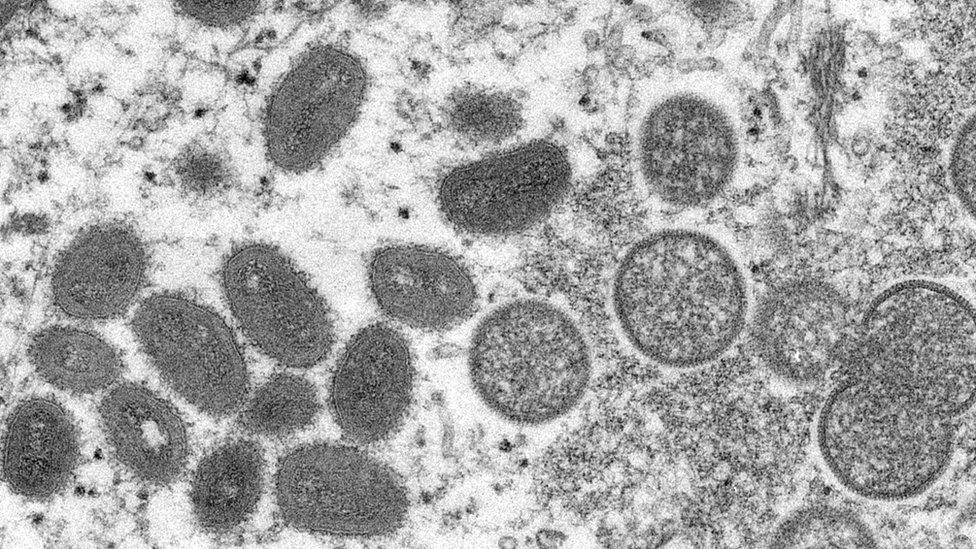
- Published25 May 2022
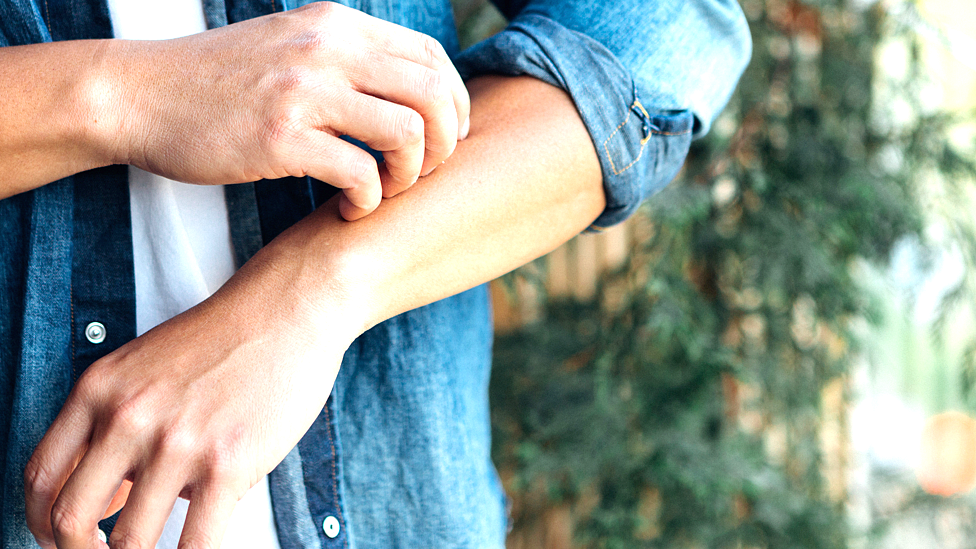
- Published5 August 2022

- Published23 May 2022
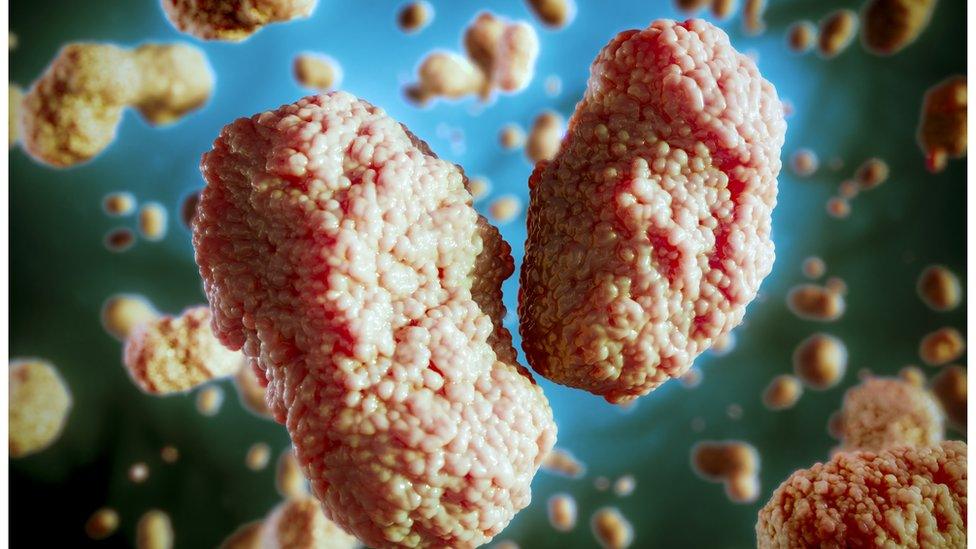
- Published23 May 2022
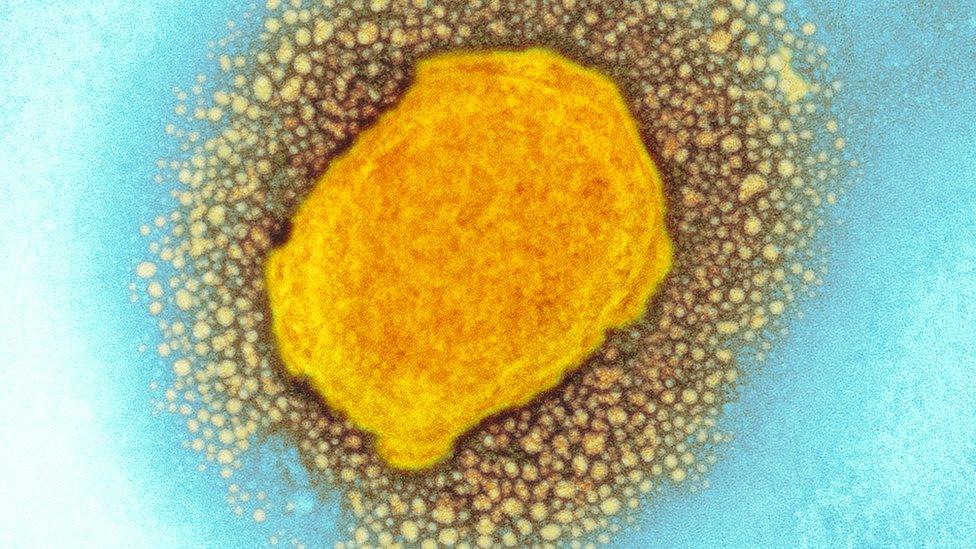
- Published4 January 2021
